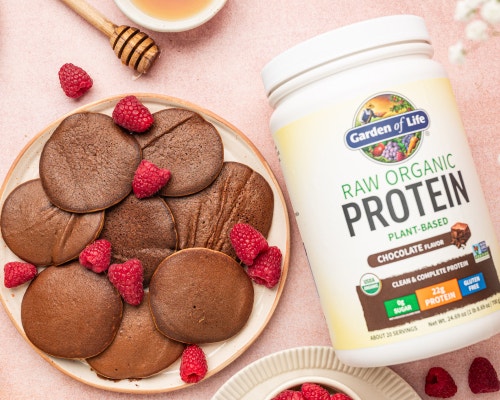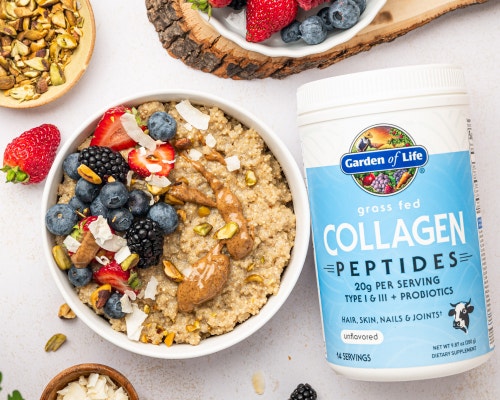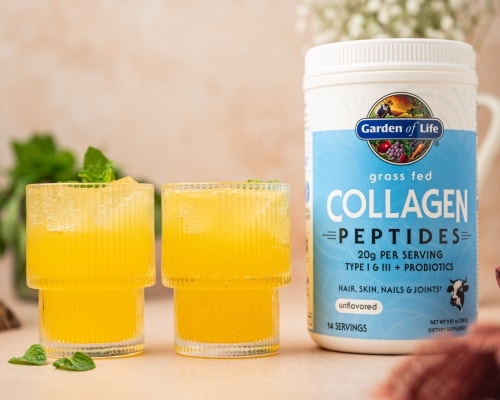The Best Vitamins for Women
- 5/8/25

Women have unique nutrition needs as they move through various stages of the lifecycle, from the teen years, to pregnancy, and menopause. To support all these transitions, women have to pay closer attention to their diet and vitamin and mineral intake, which changes depending on where you are in life.
To help support you in your health journey no matter what phase you are in, we created this comprehensive guide of the top vitamins for women, how much you need, the best food sources, and what to consider at various life stages. Be sure to talk to your health practitioner about which supplements regimen is right for you as individual needs vary.
Best Vitamins and Minerals for Women
Women have specific nutritional requirements that differ from men, which are influenced by menstruation, pregnancy, breastfeeding, and menopause. Here are some of the key vitamins and minerals to consider for women’s health:
Folic acid (Vitamin B9): Plays a role in cell growth and metabolism, especially important during pregnancy to prevent neural tube defects.
How much you need: 400 mcg/day for women of childbearing age
Pregnant women: 600 mcg/day
Breastfeeding women: 500 mcg/day
Food sources: green leafy vegetables, legumes, citrus fruit, fortified grains
Iron: Vital for making hemoglobin, a protein that carries oxygen in the blood. Women of childbearing age need more iron due to monthly blood losses.
How much you need: 18 mg/day for women of childbearing age
Pregnant women: 27 mg/day
Breastfeeding women: 9 mg/day
Women over 51: 8 mg/day
Food sources: Meat, poultry, fish, legumes, fortified cereals.
Calcium: Essential for bone health, helping reduce the risk of osteoporosis.
How much you need: 1000 mg/day for women of childbearing age, including during pregnancy and breastfeeding
Women over 51: 1200 mg/day
Food sources: Dairy products, leafy green vegetables, and fortified plant-based milks
Vitamin D: Supports calcium absorption and bone health. Our bodies can make vitamin D when exposed to the sun, but supplements may be necessary, especially if you don’t spend a lot of time outdoors.
How much you need: 600 IU/day (15mcg) for women of childbearing age, including during pregnancy and lactation
Women over 70: 800 IU/day (20mcg)
Food sources: Fish, fortified milk, mushrooms
Vitamin B12: Important for nerve function and the production of DNA and red blood cells.
How much you need: 2.5 mcg/day
Pregnant women: 2.6 mcg/day
Breastfeeding women: 2.8 mcg/day
Food sources: Primarily in animal products, vegans must supplement to meet their daily needs
Omega-3 fatty acids: Supports heart health and brain function.
How much you need: 1.1 g/day
Pregnancy: 1.4 g/day
Breastfeeding: 1.3 g/day
Food sources: Fatty fish like salmon and tuna, chia, flax, and walnuts
Considerations for Pregnancy and Menopause
Pregnancy and older adulthood have special nutrition considerations. During pregnancy, women have increased nutrient needs to support themselves and the developing fetus.
Specific nutrients to pay attention to include:
● Folate
● Iron
● Calcium
● Vitamin D
● DHA (Docosahexaenoic Acid)
These nutrients are often included in most prenatal formulas due to their importance. A separate DHA supplement may be recommended, since it is a nutrient that is not typically included in most prenatals.
When it comes to menopause, other nutrients become important since as we age, the absorption of certain vitamins and minerals becomes more difficult.
Key nutrients of importance include:
● Calcium
● Vitamin D
● Vitamin B12
● Vitamin B6
If you are over the age of 50, you may want to consider specific multivitamins targeted to your age group, like our Vitamin Code 50 and Wiser Multivitamin, to meet your needs.
Choosing the Right Vitamins for Women
When choosing the best daily vitamins for women, here are a few questions to ask yourself first.
● Are there any nutrient gaps where you might be missing essential vitamins and minerals?
● Are you a vegetarian or vegan?
● Are you allergic or intolerant to an entire food group (for example lactose intolerance or gluten sensitivity)?
● What life stage are you in? Pregnant? Breastfeeding? Menopause?
These questions can help guide you towards vitamins and minerals you might want to supplement. If you are unsure, it is always best to check with a healthcare provider or registered dietitian who can recommend the best vitamins for you.
When you are trying to choose between products, there are several aspects to consider. Always opt for supplements that are third-party tested for quality assurance. Certifications from organizations like the U.S. Pharmacopeia (USP) or NSF International are indications that the product meets high standards.
Garden of Life Women’s Vitamins
Garden of Life has a whole line of multivitamins and other tailored products specifically formulated to support women’s health. These include:
Garden of Life mykind Organics Prenatal Once Daily: This organic, non-GMO prenatal multivitamin provides 600 micrograms of natural folate and 18 milligrams of iron per serving, plus a variety of other nutrients that are critical during pregnancy.
Garden of Life Vitamin Code 50 & Wiser Women: This multivitamin is specifically formulated to meet the needs of women over 50, providing essential nutrients like vitamin B12, vitamin D, and calcium for bone and overall health.
Understanding your unique nutritional needs is the cornerstone for maintaining health and well-being at every stage of life. While a balanced diet is the foundation of good nutrition, tailored supplements can play a role as well. Visit our vitamins for women page to see all of the products we offer.
References:
- Folate. Accessed February 27, 2025. https://ods.od.nih.gov/factsheets/Folate-HealthProfessional/
- Iron. Accessed July 25, 2023. https://ods.od.nih.gov/factsheets/Iron-HealthProfessional/
- Calcium. Accessed May 5, 2023. https://ods.od.nih.gov/factsheets/Calcium-HealthProfessional/
- Vitamin D. Accessed October 11, 2023. https://ods.od.nih.gov/factsheets/VitaminD-HealthProfessional/
- Vitamin B12. Accessed February 27, 2025. https://ods.od.nih.gov/factsheets/Vitaminb12-HealthProfessional/
- Vitamin B12. Accessed February 27, 2025. https://ods.od.nih.gov/factsheets/Vitaminb12-HealthProfessional/





